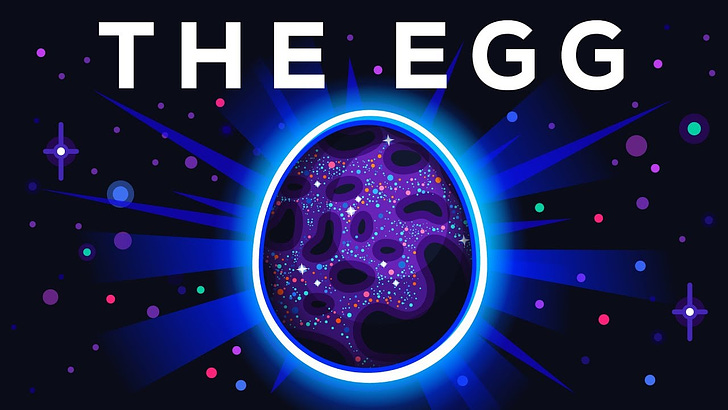Is Everyone the Same Person? What That Means for Creatives and Entrepreneurs
Exploring the Boundaries of Self, Creativity, and Connection Through a Radical Idea
Every morning, I spend time reading outside of my usual creative and entrepreneurial circles of philosophy, science, music and history to find fresh perspectives that might spark new insights. Recently, I stumbled upon an article in Nautilus titled “Is Everyone the Same Person?”. It’s a long read, but a thought provoking one. It’s the kind of big picture thinking that forces you to stop and reassess the way you see yourself and the people around you.
At first, the idea seems absurd. Of course, we all have individual experiences, thoughts, and lives. But as I kept reading, I realized the argument wasn’t about physical sameness but rather a deeper, more philosophical question of whether consciousness itself is a shared phenomenon. And the more I thought about it, the more I saw how it connects to the journeys we take as creatives and entrepreneurs.
The History of the Concept of Self
The idea that we might all be aspects of a singular consciousness isn’t new. Philosophers and spiritual traditions across cultures have explored this for centuries. The Hindu concept of Brahman suggests that all individual selves (atman) are merely expressions of a greater, unified whole. Schopenhauer, one of the biggest influences on modern existential thought, proposed that behind our individual experiences is a single, universal will.
Even in modern neuroscience and physics, there are theories that consciousness isn’t just an emergent property of individual brains but rather something fundamental to the universe, something we all partake in, rather than own. If that’s the case, then maybe the lines we draw between ourselves and others aren’t as rigid as we think.
Key Insights and Their Impact on Creativity and Entrepreneurship
1. The Illusion of Separateness
The article argues that our sense of individuality is more of a useful illusion than an absolute truth. We see ourselves as separate because it helps us navigate the world, but underneath it all, we’re deeply interconnected.
For creatives and entrepreneurs, this is a powerful realization. If we’re not as separate as we think, then every song, piece of art, product, or service we create is not just for “us”, it’s for “everyone.” We’re tapping into something that already exists within the collective human experience.
2. Empathy as a Superpower
If we are all different versions of the same consciousness, then empathy isn’t just about understanding others, it’s about understanding ourselves in different forms. The best creators and entrepreneurs intuitively grasp this. Great musicians write songs that resonate because they see themselves in their audience. Great businesses succeed because they design products as if they were the customer.
When we create, we should be asking: How do we reflect something universal? How do we give people a part of themselves they didn’t know they needed?
3. The Shared Journey
Every challenge, every success, every failure. If consciousness is shared, then these aren’t “my” experiences alone. They belong to all of us. That means the lessons we learn have value beyond just ourselves.
When creatives and entrepreneurs share their stories, their struggles, and their wins, it’s not about personal branding or marketing. It’s about adding to a larger conversation. When you document your journey, you’re providing a roadmap for others who, in some way, are walking the same path.
Why This Matters for Creatives and Entrepreneurs
Thinking about the self in this way shifts how we approach creativity and business. Instead of seeing success as an individual accomplishment, we start to view it as a contribution to something bigger. Instead of fearing failure, we recognize it as a shared experience that others have faced and will face again. Instead of competing, we collaborate, knowing that every great idea lifts the whole ecosystem.
One way to truly grasp this idea is through a thought experiment: Imagine if every person you met was, in some way, another version of you. How would that change your interactions? How would you treat others? How would you approach your creative work or business? By consciously applying this lens, even for a short time, you might uncover new insights about connection, purpose, and the way we contribute to the world.
If we are all part of the same larger consciousness, then every experience, big or small matters. Every song written, every business launched, every risk taken is not just an isolated event. It’s a part of something much greater.
That’s why I always say: EVERY day is a celebration. Because in the grand scheme of things, each moment of creativity, connection, and contribution is a reason to celebrate, not just for ourselves, but for all of us.
What Do You Think?
I’d love to hear your take. Have you ever felt a moment of deep connection where it seemed like the boundaries between self and others blurred? How do you see this idea influencing your creative or entrepreneurial journey? Let’s keep the conversation going in the comments.
Astro Joe Garcia
The Egg – Andy Weir
Andy Weir’s short story The Egg, which is mentioned in the source article, beautifully illustrates this concept of shared consciousness. In the story, a man who has just died learns from a godlike being that he is not just one person—he has lived every life that has ever existed and ever will exist. Every interaction he has had was, in essence, with another version of himself. It’s a mind expanding take on empathy, connection, and the illusion of separateness.
Normally, I tie a piece of music to my posts, but for this one, I felt that this 8-minute story was the perfect fit. It captures the essence of the article’s premise in a way that words alone sometimes struggle to do.



